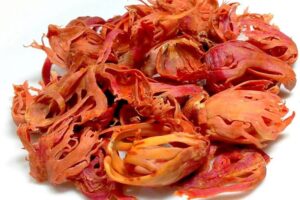Turmeric Trade: Kerala's Golden Spice
Kerala, celebrated for its diverse spice cultivation, stands out as a significant producer of high-quality turmeric. Known as the “Golden Spice,” turmeric is treasured for its vibrant color, earthy flavor, and exceptional medicinal properties. It plays an essential role in Kerala’s agricultural economy and enjoys high demand in global markets.
The Kerala Advantage
Kerala’s warm, humid climate and fertile soil create the perfect conditions for turmeric cultivation. The state’s turmeric is known for its deep yellow hue, high curcumin content, and robust flavor. These qualities make Kerala turmeric highly sought after by culinary experts, health practitioners, and cosmetic manufacturers worldwide.
Farmers in Kerala continue to employ traditional and organic farming practices, ensuring that the turmeric produced is of the highest quality. These sustainable practices help preserve soil fertility and promote long-term agricultural productivity.
The Historical Significance of Turmeric
Turmeric has been a staple of Kerala’s spice trade for centuries, with its use recorded in ancient Indian texts and Ayurvedic practices. Historically, it was valued not only as a culinary ingredient but also as a potent medicinal herb and a natural dye. Its significance in religious rituals and traditional medicine further highlights its deep-rooted cultural importance.
Global Demand and Export
Turmeric’s popularity has surged globally due to its numerous health benefits and versatile applications. It is a key ingredient in food, beverages, pharmaceuticals, and skincare products.
Kerala’s turmeric is exported to major markets, including the United States, Europe, Southeast Asia, and the Middle East. The rising interest in organic and chemical-free products has opened new opportunities for Kerala’s turmeric exporters, allowing them to position their product as a premium, health-boosting spice.
Health and Economic Benefits
Turmeric is renowned for its powerful anti-inflammatory, antioxidant, and antibacterial properties. Curcumin, its active compound, is known to boost immunity, promote heart health, and support joint health. Turmeric is also widely used in Ayurvedic treatments for its detoxifying and healing properties.
From an economic perspective, turmeric cultivation supports countless farmers in Kerala, providing them with stable incomes and contributing to rural development. The spice’s growing demand ensures economic resilience and enhances Kerala’s agricultural sector.
Sustainable and Ethical Practices
Kerala’s turmeric farmers are increasingly turning to organic and sustainable farming techniques to meet global standards. By avoiding synthetic pesticides and fertilizers, farmers produce turmeric that is not only healthier but also environmentally friendly.
Fair trade practices are gaining prominence, ensuring that farmers receive fair compensation and encouraging ethical trade relationships. This enhances Kerala’s reputation as a reliable source of ethically produced turmeric.
Trade Opportunities
Turmeric presents lucrative opportunities for importers and exporters looking to expand their spice offerings. Kerala’s well-established spice trade infrastructure, coupled with government initiatives to support spice farmers, provides businesses with a seamless supply chain.
With growing demand for natural health products, investing in Kerala’s turmeric trade can yield significant returns. Partnerships with local farmers and cooperatives ensure consistent quality and foster mutually beneficial relationships.
Conclusion
Kerala’s turmeric, known for its purity and potency, continues to shine on the global stage. As the demand for high-quality, organically grown turmeric rises, traders can benefit from investing in this golden spice. By promoting sustainable practices and supporting local communities, Kerala’s turmeric trade is set to flourish, securing its place as a valuable asset in the international spice market.




